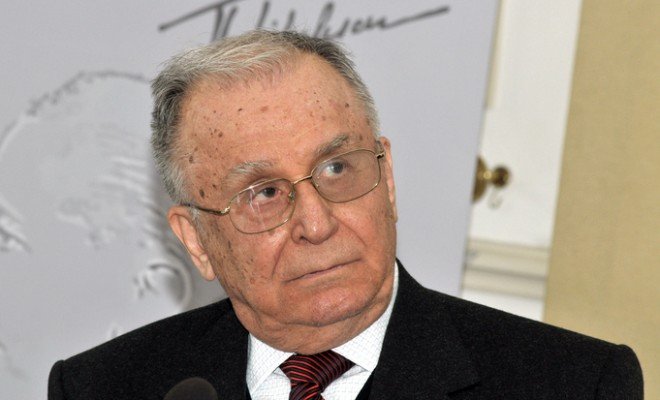Ion Iliescu, Romania’s first freely elected president who played a pivotal role in the country’s tumultuous transition from communism to democracy, has died at the age of 95.
The Romanian government confirmed his passing in a statement on Monday, expressing deep regret and announcing that details of a state funeral would be shared in due course. Iliescu had been diagnosed with lung cancer and was hospitalised in Bucharest’s Elias Hospital in early June. He had also undergone heart surgery in 2019 to treat pericardial effusion, a condition affecting the heart.
Born on 3 March 1930 in the southern city of Oltenița, Iliescu rose through the ranks of Romania’s Communist Party before falling out with the regime of Nicolae Ceaușescu. When Ceaușescu was overthrown in the violent revolution of December 1989, Iliescu emerged as a key figure, taking leadership of the National Salvation Front (FSN), which filled the power vacuum.
In 1990, Iliescu was elected president in the country’s first free elections, marking a new democratic chapter for Romania. He served two terms between 1990 and 1996, and returned for a third term from 2000 to 2004. However, his legacy remains deeply polarising.
Iliescu faced multiple accusations over the years, particularly related to his role in the 1989 revolution that led to Ceaușescu’s execution. In 2019, he was charged with crimes against humanity, but was never convicted. Critics accused him of manipulating the uprising and orchestrating violent crackdowns to consolidate power.
One of the most controversial episodes of his presidency was the 1990 Mineriad, when Iliescu called in thousands of miners from the Jiu Valley to suppress ongoing anti-government student protests in Bucharest. The violent intervention resulted in several deaths and hundreds of injuries, drawing strong international condemnation.
In recent years, Iliescu withdrew from public life, rarely appearing in the media, though he occasionally posted on his personal blog. His final entry, dated 19 May 2025, congratulated Bucharest’s pro-European Union mayor, Nicușor Dan, on his election as president.
Ion Iliescu leaves behind a complex legacy remembered by some as a stabilising force during Romania’s fragile rebirth, and by others as a symbol of missed opportunities and unresolved truths.

